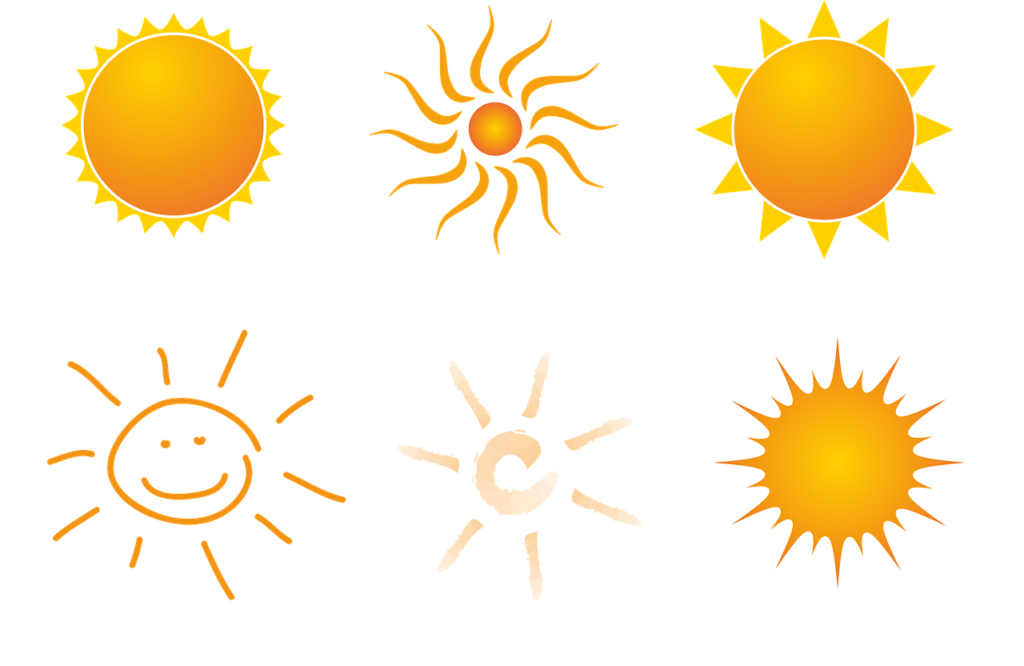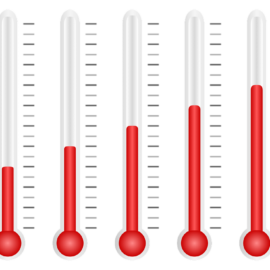
Summer has just started and people are experiencing excess heat.
Just a few days into the first week of summer, Louisiana is already experiencing life-threatening temperatures that are causing an increase in illnesses driven by unbearable heat. At least a couple residents have been sent to the intensive care unit for health conditions related to the excessive temperatures currently baking the state, said Dr. Jeffrey Elder, medical director for emergency management at University Medical Center and LCMC Health. Elder has noticed an uptick in heat illness over the last week and a half. “Unfortunately, this is something we see every summer, and I expect that we’ll see more of it,” said Elder.
nola.com
This is not unusual but not this hot so soon.
Louisiana experiences heat waves every year, but the state is in for a particularly sweltering spate through the weekend. On Wednesday, the heat index – or the “feels-like” temperature that factors in humidity – was as high as 108 degrees Fahrenheit in New Orleans, according to the National Weather Service. Between Thursday and Sunday, the heat index will hover between 108 to 110 while the actual temperature will reach a high of 96 to 98 degrees in that time period. Wednesday marked the seventh straight day of a heat advisory issued by New Orleans city officials that is expected to last at least through June 26. On Sunday, the National Weather Service said there may be rain to bring the temperature down.
EMS bears most of the brunt as this is what the people need – medical care.
The New Orleans EMS responded to 12 heat-related emergencies between Sunday and Tuesday, with six of those falling on Sunday, which was Juneteenth and Father’s Day. “This month, I’m looking at going from one or two heat-related calls out of all of the 911 calls we’re running to … to now picking up six in a day,” said EMS spokesperson Janick Lewis. A long stretch of hot days always leads to more critical illness in particularly vulnerable groups, such as the elderly and infants, said Dr. Jim Diaz, director of environment and occupational Health at LSU Health New Orleans School of Public Health. “You worry about the heat stress that occurs in people that are elderly, homebound, in a wheelchair,” Dias said. “(Those) who can’t really get out, go to another room with a window air conditioning unit, have no fan and are kinda stuck in place.”
Your normal, standard, over the counter medicines can also cause problems.
But certain medications, including common over-the-counter drugs, can also put many more people at risk, said Diaz. When it’s very hot, human bodies control temperature by shifting hotter blood from the kidney and gut to the skin to induce sweating, which dissipates heat and cools down the body. Common medications such as cold drugs, motion sickness medication and antihistamines for allergies interfere with that process. “These medications are meant to dry you up,” said Diaz. Well if they dry you up, they also dry up the sweating mechanism.” Many heart medications also stop that blood-shifting cool-down process, said Diaz. Obesity, diabetes, cancer and certain skin conditions can also interfere with temperature regulation. So can drugs like cocaine, methamphetamine and alcohol. “Once you’re sweating mechanism is interfered with and you can’t really sweat profusely, that is when you get in trouble,” said Diaz.
Heat exhaustion is the usual complaint.
Heat exhaustion is characterized by lightheadedness, dizziness, thirst, nausea and vomiting. While heat exhaustion can be treated by cooling the person down and drinking fluids, it can quickly tip into heat stroke, a serious condition with a fatality rate as high as 50%. When a person enters heat stroke territory, the body has shifted to around 103 degrees. At that point, the person might start acting intoxicated, and calling 911 is necessary. “One hundred and three — that’s dangerous,” said Diaz. “If it gets 105 or above, you’re dead. You’re gonna have a cardiac arrest.” Infants also have trouble controlling body temperature, said Dr. Ajsa Nikolic, a family medicine doctor at Ochsner Health. And they face another threat: soaring temperatures inside cars. Earlier this week, a 5-year-old boy died after being left inside a car in Texas, according to news reports. Temperatures in cars can spike to 110 degrees in just 15 minutes when it’s 95 degrees outside. “Just terrible, terrible things,” said Nikolic. “Always just be cognizant of your loved ones and who you can support.”
I am lucky as we have a working heat pump and trees round the house. Not all are as lucky.



